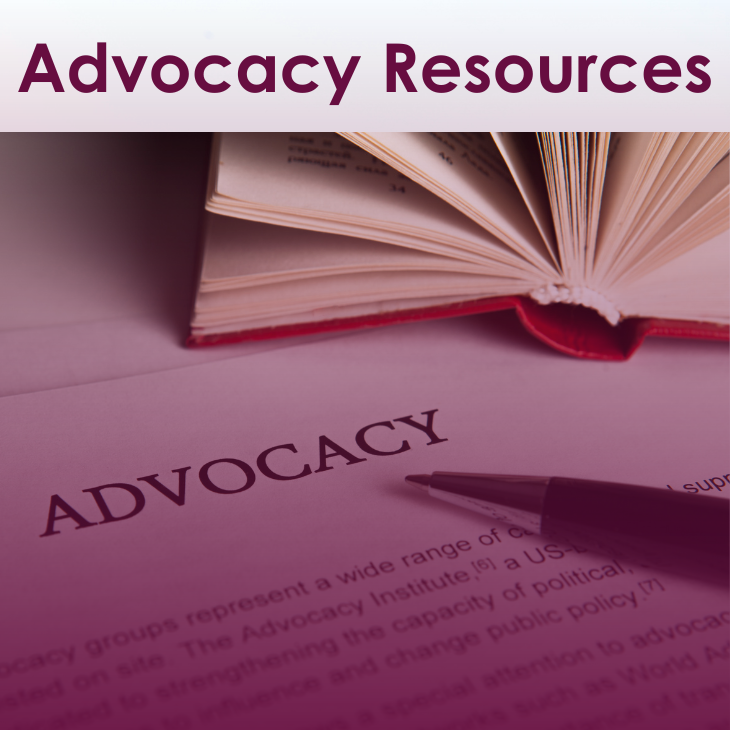
Gözden Geçirme: 2023
Doğumsal anomaliler, yaklaşık her 20 gebelikten birinde görülür ve hafif yapısal bozukluklardan ciddi genetik hastalıklara veya zihinsel gelişim geriliklerine kadar değişen derecelerde olabilir. Bazı bireyler, doğumsal anomalili bir çocuk sahibi olma açısından ortalamadan daha yüksek risk taşır. Genetik tarama, bir popülasyondaki bireylerin kalıtsal bir hastalık açısından artmış riske sahip olup olmadığını belirlemek amacıyla yapılan özel testleri ifade eder. Genetik test ise, artmış risk taşıdığı düşünülen bireylerin genetik durumunu öğrenmek için yapılan testtir. Bu iki terim sık sık birbirinin yerine kullanılır. Gebelik öncesi yapılan genetik tarama, ileri yaşa veya aile öyküsüne bağlı olarak artmış genetik hastalık ve doğumsal anomali riski taşıyan çiftleri belirlemede yardımcı olabilir. Ancak hiçbir test, bir çocukta tüm olası anomalilerin riskini kesin olarak tahmin edemez. Ayrıca çevresel ya da toksik etkenlere bağlı olan ya da rastlantısal ve açıklanamayan anomalilerin çoğu genetik değildir ve genetik tarama ile saptanamaz.
Genetik hastalıklar açısından tarama, çiftin ırksal veya etnik kökenine, aile ve tıbbi geçmişine ve ilişkili durumlara göre değişir. Farklı ırksal ve etnik gruplarda belirli hastalıkların görülme sıklığı artmıştır ve bu kökenden gelen çiftlerde taşıyıcılık durumu aşağıda açıklandığı gibi taranabilir. Çoğu çiftte, aile öyküsü varsa ya da riskli bir etnik gruba mensuplarsa taşıyıcılık durumu kontrol edilir.
Genetik hastalık taşıyıcılığı taramasına ek olarak, gebelik sırasında bebeğin Down sendromu gibi ciddi kromozomal anormallikler ya da spina bifida gibi omurilikle ilgili anomaliler açısından etkilenip etkilenmediğini belirlemek amacıyla doğum öncesi testler yapılabilir. Her kadın, spina bifida ve diğer nöral tüp defektleri açısından alfa-fetoprotein ölçümü gibi invazif olmayan tarama testleriyle riskini belirleyebilir. Eğer bu tarama testinde artmış risk saptanırsa, tanısal amaçlı ultrason ve amniyosentez gibi özel testler uygulanabilir. Genetik taramanın yapılma nedenlerinden biri de yaş faktörüdür; çünkü yaş ilerledikçe kromozomal anomali riski artar. Ayrıca, eğer her iki ebeveyn de sessiz taşıyıcı ise, doğmamış bebekte hastalığın olup olmadığını anlamak için prenatal test yapılabilir.
Aşağıdaki hastalıkların aile öyküsü varsa genetik danışma önerilir ve uygun olan durumlarda tarama/test yapılmalıdır:
Genetik hastalıklar açısından tarama, çiftin ırksal veya etnik kökenine, aile ve tıbbi geçmişine ve ilişkili durumlara göre değişir. Farklı ırksal ve etnik gruplarda belirli hastalıkların görülme sıklığı artmıştır ve bu kökenden gelen çiftlerde taşıyıcılık durumu aşağıda açıklandığı gibi taranabilir. Çoğu çiftte, aile öyküsü varsa ya da riskli bir etnik gruba mensuplarsa taşıyıcılık durumu kontrol edilir.
Genetik hastalık taşıyıcılığı taramasına ek olarak, gebelik sırasında bebeğin Down sendromu gibi ciddi kromozomal anormallikler ya da spina bifida gibi omurilikle ilgili anomaliler açısından etkilenip etkilenmediğini belirlemek amacıyla doğum öncesi testler yapılabilir. Her kadın, spina bifida ve diğer nöral tüp defektleri açısından alfa-fetoprotein ölçümü gibi invazif olmayan tarama testleriyle riskini belirleyebilir. Eğer bu tarama testinde artmış risk saptanırsa, tanısal amaçlı ultrason ve amniyosentez gibi özel testler uygulanabilir. Genetik taramanın yapılma nedenlerinden biri de yaş faktörüdür; çünkü yaş ilerledikçe kromozomal anomali riski artar. Ayrıca, eğer her iki ebeveyn de sessiz taşıyıcı ise, doğmamış bebekte hastalığın olup olmadığını anlamak için prenatal test yapılabilir.
Monogenik Hastalıklar İçin Preimplantasyon Genetik Test (PGT-M)
In vitro fertilizasyon (IVF) ile birlikte uygulanan ve embriyolar transfer edilmeden önce belirli genetik bozukluklar açısından test edilmesini sağlayan bir tekniktir. PGT-M, kalıtsal ciddi bir hastalığı olan ya da taşıyıcısı olan bireylerin bu hastalığı çocuklarına geçirme riskini azaltmalarına olanak tanır.\Genetik Tarama İçin Endikasyonlar – İleri Anne Yaşı
İleri yaş, kromozomal sorunlar ve düşük riskini artırabilir. Gebelik öncesi bu riskin doktorunuz veya genetik danışman ile değerlendirilmesi ve risk azaltıcı seçeneklerin görüşülmesi önerilir. İnvaziv olmayan doğum öncesi test (NIPT), birinci trimesterin sonlarında ya da ikinci trimesterin başlarında yapılabilir. Normal bir tarama testi, kromozomal anomali riskinin azaldığını gösterir, ancak sıfırlamaz. Tarama testi pozitifse, tanısal doğrulama için koryon villus biyopsisi veya amniyosentez yapılabilir. Bu testlerin her biri düşük riski taşır. Pek çok ebeveyn, gebelikleri hakkında bilinçli kararlar verebilmek için bu bilgileri edinmek ister. Destekli çatlatmadan ben fayda görür müyüm?Irksal veya Etnik Hastalıklarla İlişkiler
- Orak Hücreli Anemi: Afrika kökenli bireylerde hemoglobin elektroforezi (basit bir kan testi) ile taşıyıcılık durumu taranmalıdır; çünkü her 10 kişiden biri taşıyıcı olabilir.
- Kistik Fibrozis (KF): Kistik fibrozis geninin kusurlu versiyonunu taşıyan ama hastalık semptomu göstermeyen beyaz bireylerin oranı %3 ila %10’dur. Hastalığın ortaya çıkması için iki kusurlu genin (anne ve babadan) alınması gerekir. KF, beyaz ırkta en sık görülen ciddi kalıtsal hastalıktır ve özellikle kuzey/orta Avrupa kökenli ve Eskinazi Yahudilerde daha sık görülür.
- Talasemi: Yunan, İtalyan, Akdeniz kökenli veya Güney Asya kökenli kişilerde yaygın görülür. Bu kişilerde tam kan sayımı (CBC) ve ortalama eritrosit hacmi (MCV) ile tarama yapılabilir. MCV < 80 olan bireylerde hemoglobin elektroforezi önerilir. Dünya nüfusunun yaklaşık %3’ü talasemi genini taşır.
- Tay Sachs: Doğu Avrupa Yahudileri ve Fransız Kanadalılar arasında sıklığı yüksektir.
Ailevi Yatkınlığı Olan Hastalıklar
Aşağıdaki hastalıkların aile öyküsü varsa genetik danışma önerilir ve uygun olan durumlarda tarama/test yapılmalıdır:- Down sendromu
- Musküler distrofi
- Tay Sachs hastalığı
- Kromozomal sendromlar
- Nörofibromatozis
- Orak hücre hastalığı
- Epilepsi
- Açıklanamayan ölü doğum veya yenidoğan ölümleri
- Tekrarlayan düşükler
- Huntington hastalığı
- Kistik fibrozis
- Hemofili veya diğer kanama bozuklukları
- Zihinsel gerilik
- Nöral tüp defektleri
- Ailevi disotonomi
Genetik Hastalıklarla İlişkili Tıbbi Geçmiş / Durumlar
- Tekrarlayan düşükler, kromozomal ya da genetik anormalliklere bağlı olabilir. İki veya daha fazla ardışık düşük yaşayan kadınlar, kromozomal bozukluk taşıyıp taşımadıklarını anlamak için taranabilir.
- Doğuştan vaz deferensin iki taraflı yokluğu (CBAVD): Sperm taşıyan tüplerin yokluğu kistik fibrozis (CF) ile ilişkilidir. CBAVD’li erkeklerin çoğunda CF bulunur. Bu durumdaki çiftlerde kadının CF taşıyıcılığı açısından test edilmesi önerilir.
- Azospermi (menide sperm bulunmaması) ve şiddetli oligospermi (çok düşük sperm sayısı), kromozomal veya genetik bozukluklarla ilişkili olabilir. Kan testleri, özellikle karyotip analizi (kromozom sayı ve yapısına bakar) ve Ykromozomu mikrodelesyon analizi (Y kromozomundaki kayıpları inceler) belirli olgularda faydalı olabilir. Anormallik saptanırsa genetik danışmanlık gereklidir.
Turkish Fact Sheets
View more fact sheets and booklets written by the ASRM Patient Education Committee and translated by the Turkish Society of Reproductive Medicine.Genetic Screening/Testing
Find a Health Professional
Connect with reproductive medicine experts who will guide you through your unique journey. Our search tool allows personalized matches based on location, specialization, and expertise. Take control of your reproductive health with compassionate providers, innovative treatments, and unwavering support.
Search for an Expert












